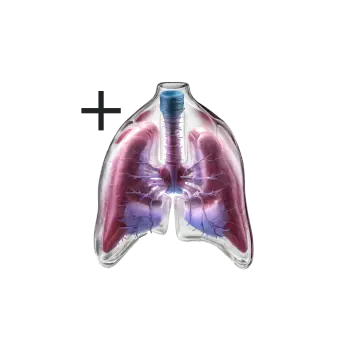What are thyroglobulin antibodies?
Thyroglobulin antibodies (TgAb) are antibodies formed against thyroglobulin, a protein produced by the thyroid gland that is essential for the production of the thyroid hormones thyroxine (T4) and triiodothyronine (T3). When the immune system begins to produce antibodies against thyroglobulin, it may indicate that the body is attacking its own thyroid tissue, a phenomenon often seen in autoimmune diseases.
Why are thyroglobulin antibodies tested?
Thyroglobulin antibodies are tested to assess the presence of autoimmune thyroid diseases, such as Hashimoto's thyroiditis and Graves' disease. These antibodies are part of the autoimmune response that can damage the thyroid and lead to decreased hormone production. The test is also important for monitoring patients after thyroid cancer treatment, as elevated TgAb levels can interfere with the evaluation of thyroglobulin levels in the blood.
What can elevated TgAb levels indicate?
An elevated concentration of thyroglobulin antibodies may indicate an ongoing autoimmune process in the thyroid, as seen in Hashimoto's thyroiditis or Graves' disease. Elevated levels may also occur in patients who have had thyroid cancer, which can affect the assessment of recurrence by providing misleading thyroglobulin results.
What can low TgAb levels indicate?
Low levels of thyroglobulin antibodies typically suggest the absence of an active autoimmune process in the thyroid. It may also indicate that the autoimmune response is mild or inactive at the moment. Some healthy individuals, particularly women and older adults, may show low TgAb levels without having an active thyroid condition.
Reference ranges and interpretation of results
The reference range for thyroglobulin antibodies is method-dependent and can vary by laboratory. The threshold or cut-off level for indicating autoimmune thyroid disease is typically set at ≥ 4.5 kU/L. A value above this cut-off may indicate an active autoimmune condition, while a value below this threshold usually suggests the absence of such a disease.
It is also important to note that thyroglobulin antibodies are less frequently present compared to TPO antibodies in autoimmune thyroid diseases. Additionally, the presence of TgAb can result in inaccurate thyroglobulin measurements, which is why it is important to always complement a thyroglobulin test with a TgAb test.
Differences between thyroglobulin antibodies and TPO antibodies
The difference between thyroglobulin antibodies (TgAb) and thyroid peroxidase antibodies (TPO antibodies) lies in which parts of the thyroid they target and how they are used in diagnostics. TgAb are antibodies formed against thyroglobulin, a protein that stores the building blocks for the thyroid hormones T3 and T4, while TPO antibodies target the enzyme thyroid peroxidase, which is necessary for the iodination process to produce these hormones. TPO antibodies are more commonly found and at higher levels than TgAb in autoimmune thyroid diseases such as Hashimoto's thyroiditis and Graves' disease. Although both antibodies can indicate autoimmunity, TPO antibodies are more specifically associated with the destruction of thyroid tissue, while TgAb can affect the measurement of thyroglobulin levels in the blood, which is particularly relevant for monitoring thyroid cancer.






















